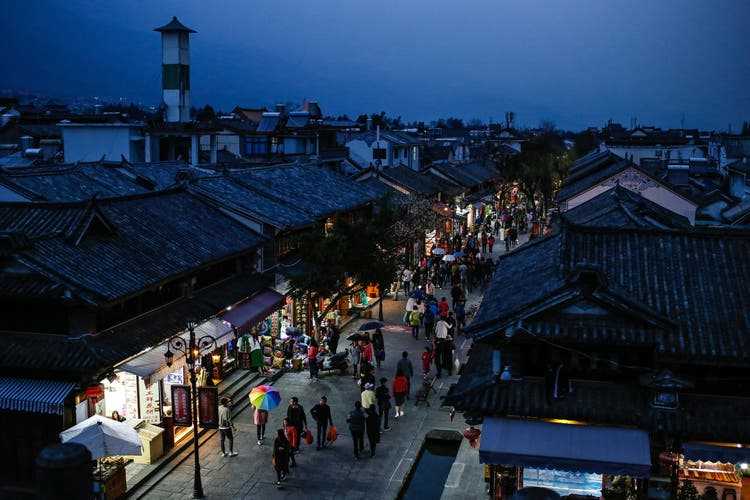Roman Pilipey/EPA
For more and more Chinese people, greater material prosperity does not automatically mean better quality of life. Instead, many go in search of new life plans – some realize them in a small town in southern China.
Suddenly Fang Le felt only sadness and endless emptiness. It took almost half a year before she learned to accept her new situation. “It was as if my life was worth nothing,” Fang Le recalls. In her old life, the consultant sat on a plane around 200 days a year. As a broker for a large Beijing real estate company, she showed wealthy Chinese people apartments and houses abroad. Fang Le traveled the world constantly, a life between airports, hotels and receptions, always in the fast lane.
When the corona virus struck two years ago, the real estate agent’s business collapsed overnight; three of the company’s approximately one hundred employees remained. Fang Le also lost her job. She felt as if the ground opened up under her feet. A friend advised her to come to Dali, a picturesque town in Yunnan Province, in the very south of China. Fang Le already knew the place from several visits, at times she commuted between Beijing and Dali because of the picturesque landscape. Without a job, but with some savings, she finally moved south and opened a guesthouse. Gradually she regained her footing.
On a December morning, Fang Le is sitting in the reception office of her small hotel. A large pane of glass gives a view of the inner courtyard. The rising sun bathes the courtyard in a reddish light; A poodle frolics between cacti, small palm trees and rose bushes. “The first six months in Dali were pure stress,” says Fang Le. “I was constantly nervous and had to realize that my previous business was over.” She couldn’t calm down.
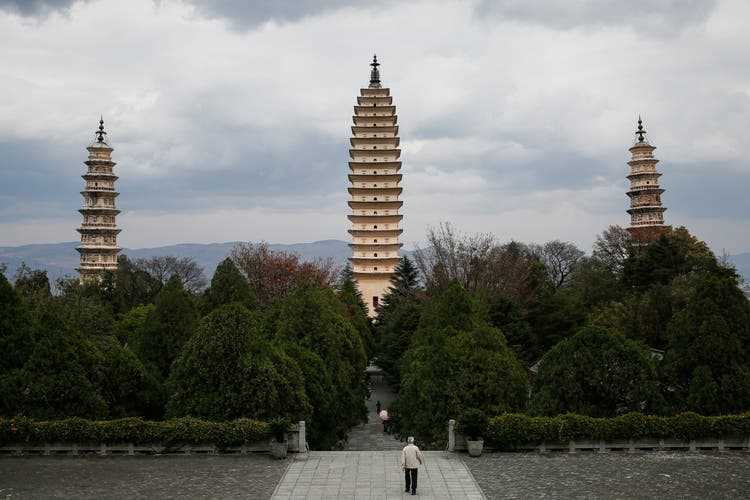
These three pagodas are one of the many landmarks in the area. by Dali.
Fang Le found calm, serenity, inspiration
Now, almost two years after the Corona crisis turned her life upside down, Fang Le seems relaxed. The young Chinese woman laughs a lot – she has picked up the individual parts of her life and put them back together. Sure, business with hotel guests is slow because of the pandemic. But in Dali, Fang Le found something that her old life never gave her: calm, serenity, inspiration.
Dali is located in southwest China at an altitude of almost 2000 meters. It is barely more than 300 kilometers from here to the Myanmar border, but almost 3,000 kilometers to the Chinese capital Beijing. The town with its approximately 80,000 inhabitants is criss-crossed by picturesque alleys, with small shops, restaurants and residential buildings to the left and right, many of them of them are built in the traditional Chinese architectural style. In the Middle Ages, Dali was the capital of the kingdom of the Bai people and the kingdom of Dali. In addition, the city was once an important junction of the southern Silk Road.
Dali is surrounded by lush nature. The rain during the summer months ensures lush greenery. It sprouts everywhere, many streets are lined with trees. The city is surrounded by rice and vegetable fields as well as tea plantations; in between lies the huge Er Hai Lake, and the Cangshan Mountains with peaks of up to 4000 meters are always enthroned in the background. It is also this combination of diverse nature and picturesque architecture that has led to young and old Chinese coming to Dali from the big cities in search of a life beyond career, commerce and earning money. In recent years, the place has also become a magnet for painters, musicians and writers.
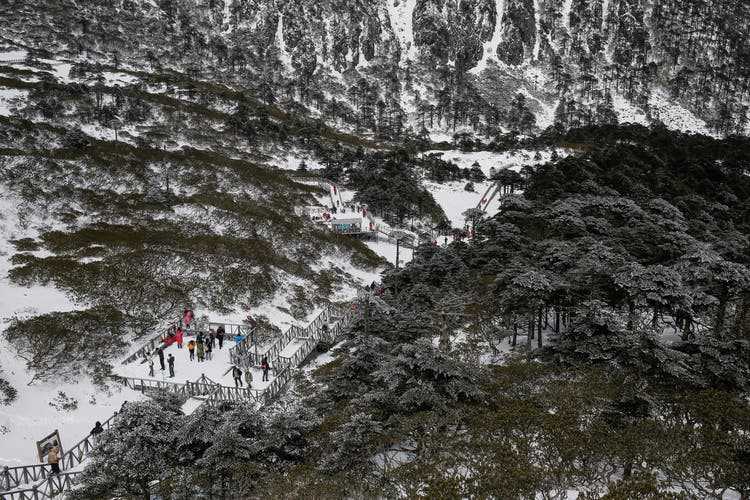
Cangshan Mountain is over 4000 meters high and a popular tourist attraction.
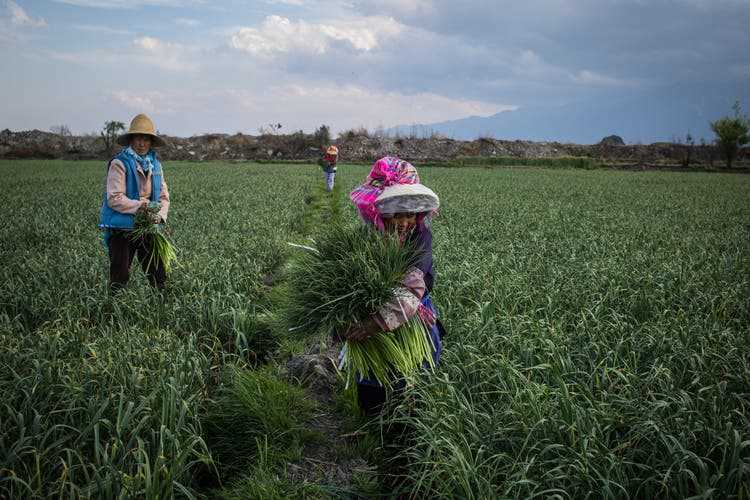
Women work in a field not far from Dali.
More than four decades after the start of the economic reforms that triggered an unprecedented boom and made many Chinese rich, more and more people are asking themselves about a purpose in life that goes beyond long hours and a well-stocked bank account.
Fang Le doesn’t miss her old life
Fang Le doesn’t miss her old life. In Beijing, she often worked late into the evening. After that she went out with friends through the nightlife. “Beijing was always stressful, I slept far too little,” she says. Fang Le still has a few friends in the capital, but she no longer goes there. Fang Le says: “They never have time anyway.”
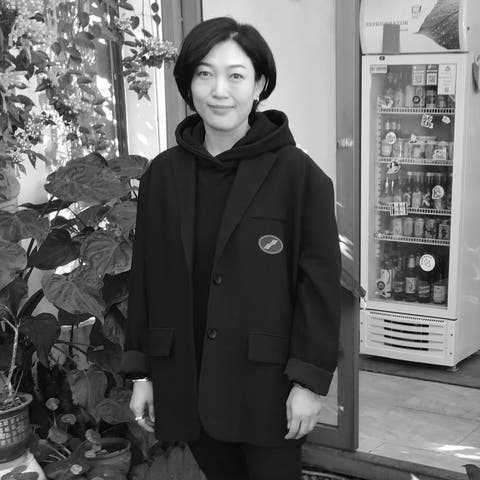
Fang Le, formerly a real estate agent, now a hotel owner.
But the Chinese found something else in Dali. Fang Le has a nine-year-old daughter who doesn’t go to a public Chinese school. Rather, she attends a kind of private alternative school, similar in concept to the German Waldorf School. On Wednesdays, for example, there are no lessons because the students go on an extensive bike tour of at least 20 kilometers. The children explore Dali’s flora and fauna. Beijing is very far away here.
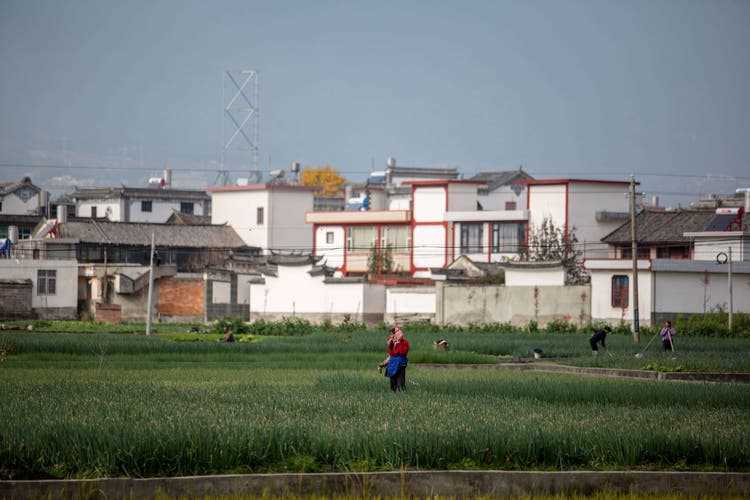
The fields begin on the outskirts of the small town of Dali.
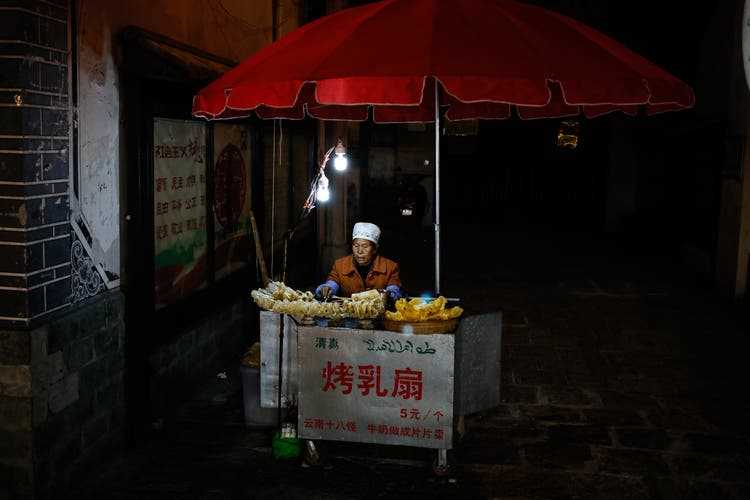
This street vendor also takes care of the physical well-being of the numerous tourists who visit Dali.
Fang Le doesn’t think much of the traditional Chinese education system. Because that only teaches subordination and adaptation. “My daughter should learn to disagree and to defend her opinion,” says Fang Le, adding: “Of course she has to be able to give good reasons.” Before that, the girl attended a regular Chinese school. The pressure was enormous. “It was all about grades,” says Fang Le.
From journalist to tea expert
Fang Le also met Wang Bo through school. His daughter is in the same class as her daughter. He also used to live in Beijing. He also led a hectic life. Wang was a journalist. He worked a lot and was often away. “It was just stress,” says Wang. Now he’s consuming tea and living a much more balanced life. For large companies, Wang checks the quality of the plants. He often roams the tea plantations of Yunnan for hours. Wang can talk at length about the different processing methods of green, black and pu-erh tea.
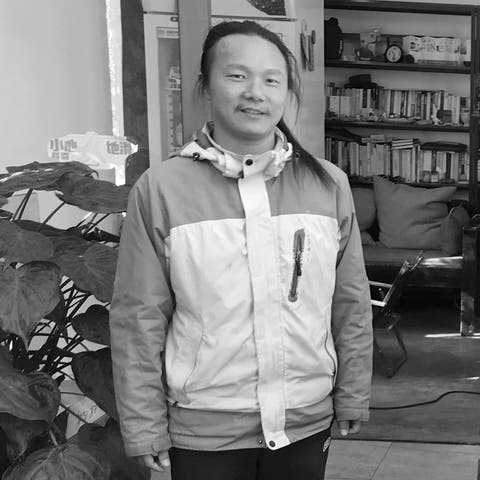
Wang Bo, former journalist turned tea connoisseur.
He also wants his daughter to be calm and balanced. Wang knows children who have developed behavioral problems and mental disorders under the pressure of Chinese public schools. School grades play a secondary role for Wang. He says: “Every person has their own special abilities. It is important to promote that.”
retreat for China’s rebels
Maybe Dali is something of a retreat for China’s rebels. Another journalist, who recently quit his job in Beijing, gave up his apartment there and now lives in Dali, says: “This is not China, that’s why I’m here.”
If you take the path east from Dali’s old town to Er Hai Lake, you will soon find yourself between meadows and vegetable fields. On the right side of the path there is a spacious farm. Chickens roam around in an enclosure just behind the entrance. Various types of vegetables, lemons and herbs such as thyme and rosemary grow further back. In the middle of a meadow stands a sturdily grown white goat. Xiao Li, the owner of the farm, crouches and milks the animal. She will end up with about a liter and a half of goat milk in her bucket. She uses it to prepare a delicious yoghurt.

Fishing with cormorants is still traditional on Lake Er-Hai. A ring around their neck prevents them from swallowing the fish they catch.
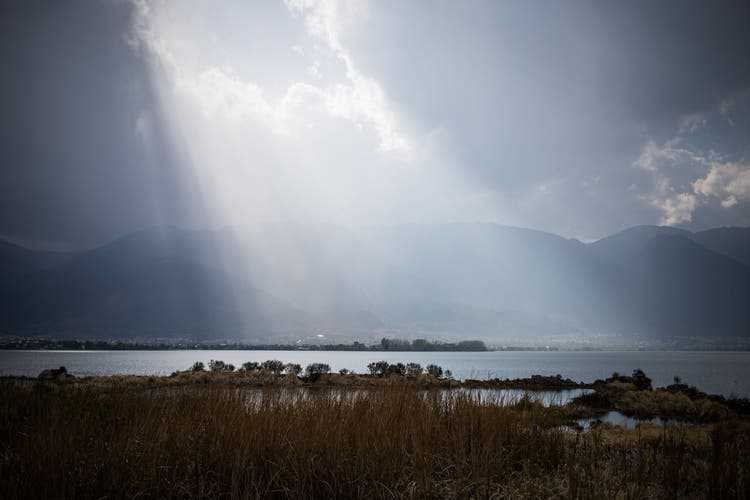
Idyllic: Lake Er-Hai in the foreground, the mountains behind.
For 37-year-old Xiao Li, it was a long way to becoming a farmer in Yunnan. In Beijing she attended one of the best design universities in China. But in 2006 she dropped out of college. “I wanted to do something practical,” says Xiao Li, while serving yoghurt and dried apple slices in her farmhouse. Eventually she founded a company in Beijing specializing in the design of body jewelry and clothing. Xiao Li had economic success, but she was not happy with it. Three years later she sold the company.
Xiao Li simply did nothing for four years
“I just didn’t know what to do anymore,” says Xiao Li. Eventually she moved to Dali and initially did – nothing. For four years she enjoyed life in the nature of southern China and spent a lot of time walking, drinking coffee, but also thinking. During her years in Beijing she had worked a lot and eaten even more. Her mother constantly supplied her with “energy supplies”, she says. Meat in particular was on the menu, which had little to do with a conscious and healthy diet. Xiao Li thought more and more about healthy eating in Dali. She wanted to live more consciously.
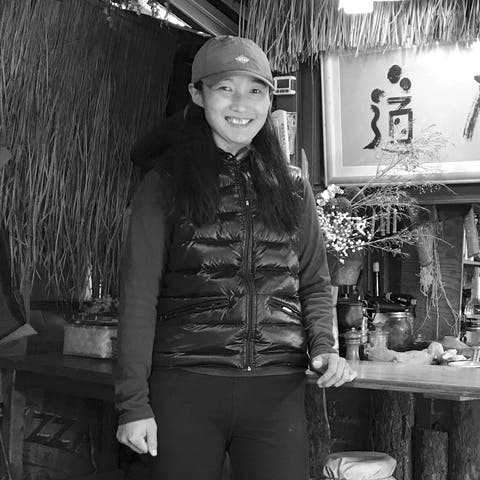
Xiao Li, formerly a designer, now a farmer.
In 2013 she started building a farm. She pays an annual lease of the equivalent of 1,700 francs for the piece of land in front of the gates of the old town. A friend helped her build the house. They mainly used materials that had been thrown away on other construction sites. The first time Xiao Li read in the evening by candlelight and warmed himself by a fire. Only a few years ago, her farm was connected to the public power grid.
From pig farming to growing vegetables to milk processing, Xiao Li taught himself everything. She read a lot and eventually became more and more fascinated by “watching food in the making”, as she describes it. She draws parallels between her current job and her earlier work in Beijing: “Body jewelry and beautiful clothing should also help people feel comfortable in their bodies,” says Xiao Li. Good nutrition basically has the same goal.
As Chinese people become more prosperous, they attach more and more importance to a healthy diet. Xiao Li now sells her organically produced food all over China. The Chinese no longer wants to go back to the big city. “Dali is my home,” she says. She still has friends in Beijing. But like Fang Le, she doesn’t visit them. “They come to my farm because they think it’s nice here,” says Xiao Li.
